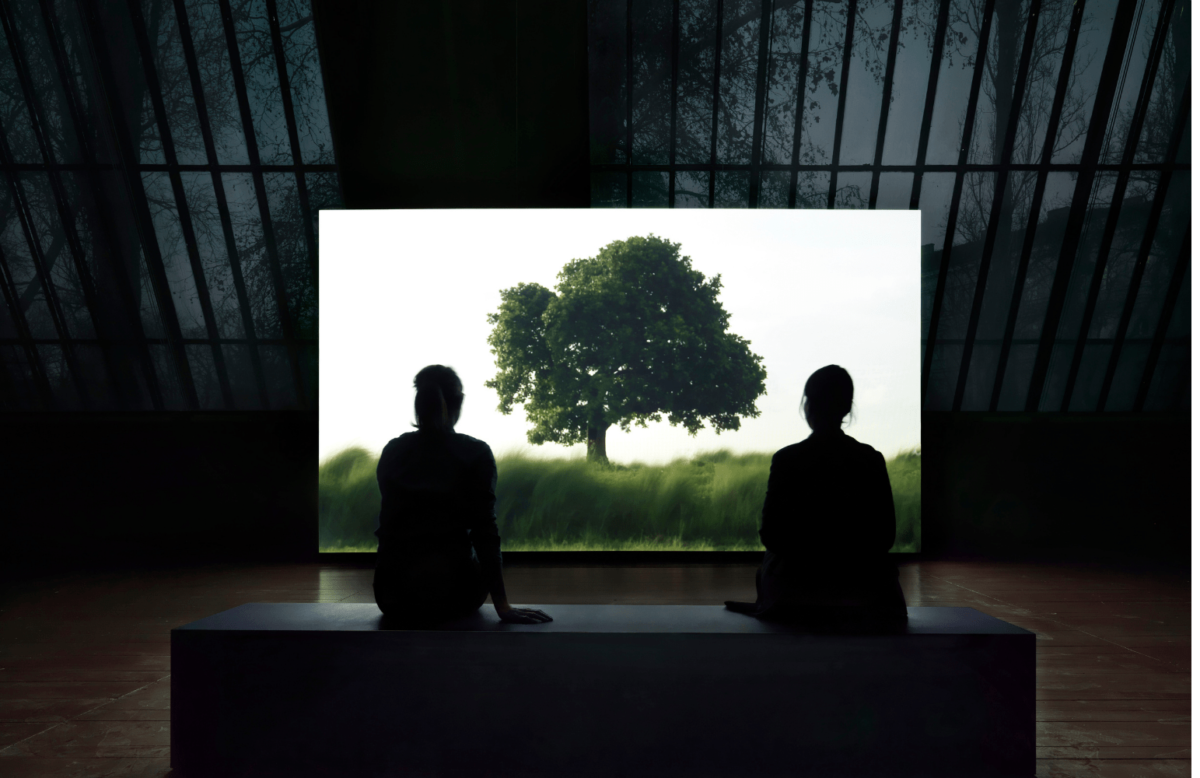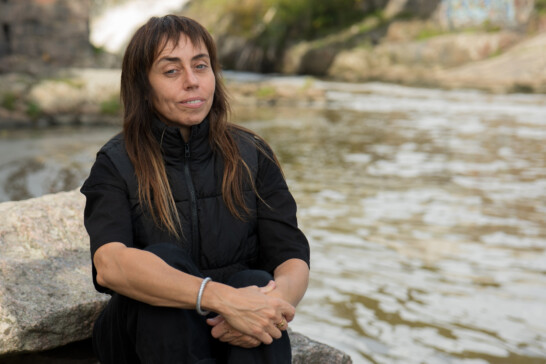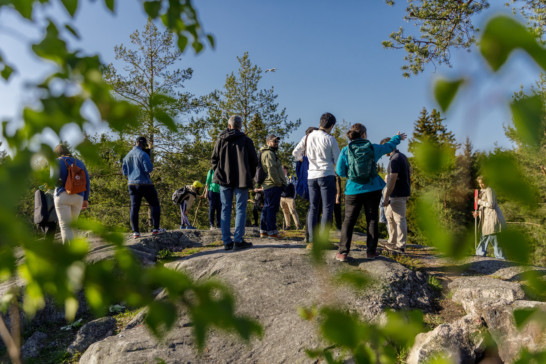News
Learning from Doubt – How did people experience Amar Kanwar’s online course?

The IHME Helsinki 2022 Commission was the online course Learning from Doubt by Indian artist Amar Kanwar. The course lasted ten weeks, from February to early May. More than a hundred people from all over Finland registered for it. Students from the Academy of Fine Arts of the University of the Arts Helsinki and the Institute of Sustainability of the University of Helsinki also took part. The course ended on May 4 with the Finnish premiere of Amar Kanwar’s films at the Bio Rex cinema in Lasipalatsi, Helsinki.
The course is based on and is a continuation of Kanwar’s 2009 installation The Sovereign Forest. This art project is constantly evolving and expanding through diverse experiments and new forms of expression. Learning from Doubt is another new way for Kawar to open The Sovereign Forest to different audiences. The contents of the course consisted of materials from the installation: films, books, podcasts, interviews, and a rice seed bank. The artwork is a creative response to our understanding of crime, politics, human rights, and ecology.
This was not a course in the traditional sense. None of the participants had to complete the assignments and it was emphasized from the beginning that everyone should find the most important issue for themselves to address during the course. A separate website (learningfromdoubt.com) was created to distribute course materials, Kanwar’s films, interview videos, and reading matter. Due to the Covid-19 pandemic, the whole course was held remotely, but this made it more widely accessible, which would not have been possible if it had been held via contact teaching. At the weekly Zoom meetings, Kanwar unpacked his thinking, as well as The Sovereign Forest process for course participants. In the feedback we received, participants saw the course as a personal process, in which doubt helped them to broaden their perspectives, to find new connections between different issues, and to make the journey at their own pace.
Learning at your own pace – slowing down to get to a more sustainable way of being
Course participants described how the way the website was set up and Kanwar’s presence in the remote meetings conveyed acceptance, kindness, and finding a pace that suited them. Pigeonholing and labelling were avoided, which emphasized that there were no definite answers to the questions raised. The course was seen as being the opposite of current demands for speed, self-confidence, continuous production, and performance.
It was described as opening up slowly and almost absurdly, which required that participants take time to assimilate it. On the course website, the material grew as the course progressed, and not everything could be accessed immediately. This created its own rhythm for making progress, which encouraged participants to slow down. Judging by the feedback, Learning from Doubt allowed participants to adopt a process that was more of a personal one than a communal experience. The course did, however, succeed in creating an emotional connection between Amar Kanwar and the participants, although many were easily left hidden behind black Zoom screens.
A joint remote meeting to address environmental crimes, the unsustainability of current farming methods, and human rights gave people hope. In the feedback, the sense of despair about the issues covered in the course turned into feelings of motivation. Sharing grief was seen as halving personal distress about the state of the environment. Indeed, a few people mentioned that they had taken the course as a kind of therapy, a moment to slow down and meditate. On the course the freedom to deal with issues that were personally significant was important.
Doubt opens up perspectives and helps find connections
For Amar Kanwar doubt is an artistic method, and one of the starting points for the course. For participants, learning from doubt provided aha experiences, confirmed that there is no need to banish personal uncertainty and that it is good to question personal motives, and reminded people of the need for different perspectives; the importance of wonder and questioning.
The themes covered through Kanwar’s work raised questions about the inadequacy of scientific evidence and facts, the importance of stories and imagination for understanding events, and the fairness of the law. The fact that the course did not label things or other people also made it easier to take on different perspectives. The feedback described how the situation and chaoticness of India got under the participant’s skin through the course material, and thus broadened their understanding of another culture. At the same time, events occurring in India could also be compared with those happening in Finland and in people’s immediate surroundings.
The course was a cornucopia, from which people could take what they wanted. Understandably, the vagueness associated with an abundance and doubt also caused frustration. People would have wanted the course assignments to be clear. Although the remote format equalized opportunities for people from all over Finland to participate, and they liked the course website, tiring of Zoom meetings comes up in participants’ accounts. They missed face-to-face encounters where conversation is more spontaneous and creativity emerges more sensitively.
Still, course participants had a chance to meet Amar Kanwar during the last week and to discuss the final assignment with him, either face-to-face in Helsinki or remotely. Twenty course participants took this opportunity. On the one hand, the pandemic posed its own challenges for carrying out and experiencing the work. On the other hand, the artwork responded to these challenges by creating time and space for dealing with difficult issues, without forgetting hope.
Art’s role in the ecological transition
In the feedback, many people mentioned that they enjoyed being free to focus on the course components and issues that interested them, and that they did not have to feel guilty about not having time to read or watch everything. To quote one participant: gaining new perspectives, discovering different connections, and learning from doubt is art at its best.
Participants’ experiences include descriptions that have come up previously in feedback on IHME commissions in recent years: calming and meditative; giving insight into the connections between humans and the environment; broadening personal perspectives; giving an appreciation of stillness and slowness. From IHME’s viewpoint, these are all essential factors in the ecological transition. The experience of ten weeks with this artwork emphasized their importance in the lives of each participant.
Similar themes emerge in the feedback on the film screening that ended the Learning from Doubt course, and which was open to all. For those who had attended the course, the films were already familiar, apart from Such a Morning. Watching the movies on a big screen complemented the course experience. In their feedback those who were seeing all the films for the first time mentioned that their own image of India and the India-Pakistan border had broadened. They felt encouraged to continue making their own art in their own chosen way. And they realized that even small things can become big in the right context. Similarly, as in the course feedback, Kanwar’s method of doubt, meticulous observation and meditative approach were a source of fascination.
Writer: Saara Moisio

